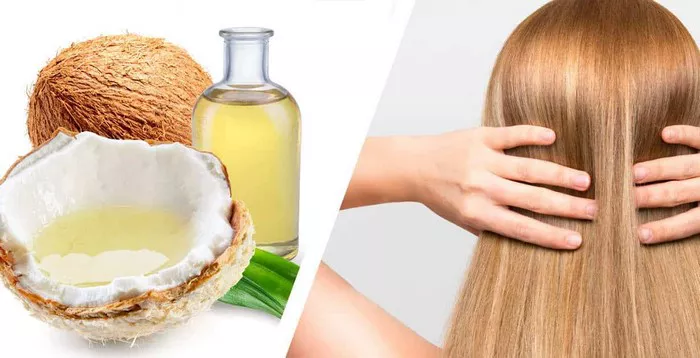Oiling hair is a time-honored tradition in many cultures, celebrated for its nourishing benefits. But a common question arises: Can I oil my hair every day? This article delves into the benefits and drawbacks of daily hair oiling, the best oils to use, and tips for incorporating oil into your hair care routine.
Understanding Hair Oiling
Hair oiling involves applying natural oils to the scalp and hair, promoting health and beauty. Various oils are used, each with unique properties and benefits. The primary functions of hair oils include:
Moisturization: Oils help lock in moisture, preventing dryness.
Nourishment: They provide essential nutrients and fatty acids, which can enhance hair health.
Protection: Oiling can form a protective barrier against environmental damage, heat styling, and pollution.
Why Oil Your Hair?
Enhanced Moisture Retention: Hair oils create a barrier that helps to retain moisture, making hair less prone to dryness and breakage.
Improved Scalp Health: Regular oiling can nourish the scalp, reduce dryness, and alleviate issues like dandruff.
Strengthening and Repair: Many oils contain vitamins and minerals that strengthen hair and help repair damage.
Increased Shine and Luster: Oiling can improve the overall appearance of hair, adding shine and a healthy look.
Can You Oil Your Hair Every Day?
Pros of Daily Hair Oiling
Enhanced Hydration: For those with dry, coarse, or curly hair, daily oiling can provide the moisture needed to maintain softness and manageability.
Scalp Nourishment: Daily oiling can help keep the scalp healthy, preventing issues like dryness and flakiness.
Improved Hair Growth: Regular oiling may promote blood circulation in the scalp, potentially encouraging hair growth.
Cons of Daily Hair Oiling
Greasy Appearance: Daily oiling may leave hair looking greasy, especially for those with fine or oily hair.
Buildup: Excessive oil application can lead to buildup on the scalp and hair, making it look dull and lifeless.
Clogged Pores: Applying oil directly to the scalp daily may clog hair follicles, leading to scalp issues.
See Also: Can the Hair Cuticle Be Repaired? Hair Health and Restoration
Determining Your Hair Type
Whether daily oiling is beneficial largely depends on your hair type:
Dry or Curly Hair
Recommendation: Daily oiling can be highly beneficial for dry, curly, or coily hair, providing much-needed moisture and nourishment.
Straight or Wavy Hair
Recommendation: If you have straight or wavy hair, you might find that oiling every other day or a few times a week is sufficient to maintain health without excess greasiness.
Fine or Oily Hair
Recommendation: For fine or oily hair types, daily oiling may not be advisable, as it can lead to a greasy look. Instead, consider using lighter oils or oiling only the ends of your hair.
Choosing the Right Oils
The type of oil you choose can also affect how often you should oil your hair. Here are some popular oils and their benefits:
Coconut Oil
Benefits: Deeply penetrates the hair shaft, providing intense moisture and reducing protein loss.
Usage: Can be used as a pre-wash treatment or for scalp massages.
Argan Oil
Benefits: Rich in antioxidants and vitamin E, it helps to nourish and add shine.
Usage: Ideal for use as a leave-in conditioner or finishing oil.
Olive Oil
Benefits: Provides deep conditioning and helps to strengthen hair.
Usage: Great for pre-shampoo treatments and deep conditioning.
Jojoba Oil
Benefits: Mimics the natural oils produced by the scalp, making it ideal for all hair types.
Usage: Can be used daily without causing buildup.
Best Practices for Daily Oiling
If you decide to oil your hair daily, here are some tips to follow:
Use Sparingly
Start with a small amount of oil. A few drops are often enough, especially for fine or straight hair. You can always add more if needed.
Focus on the Ends
Concentrate on applying oil to the ends of your hair, where it tends to be the driest. Avoid applying excessive oil to the scalp, particularly if you have fine hair.
Massage the Scalp
If you choose to apply oil to your scalp, use gentle circular motions to promote circulation and absorption.
Rinse Thoroughly
If you experience buildup or greasiness, consider using a gentle clarifying shampoo occasionally to remove excess oil.
Experiment with Frequency
Monitor how your hair reacts to daily oiling. If you notice any signs of greasiness or buildup, adjust your routine accordingly.
Signs That You Should Adjust Your Routine
Be attentive to how your hair responds to daily oiling. Signs that may indicate a need to change your routine include:
Excess Greasiness: Your hair appears and feels greasy after oiling.
Lack of Shine: Your hair looks dull and lifeless despite oiling.
Scalp Issues: You experience increased dandruff or itching.
Conclusion
Oiling your hair can provide numerous benefits, but whether to oil daily depends on individual hair types and conditions. While daily oiling can be advantageous for dry or curly hair, those with fine or oily hair may find less frequent oiling more suitable.
By choosing the right oil and following best practices, you can enjoy the nourishing effects of hair oil without the drawbacks. Ultimately, the key is to listen to your hair and adjust your routine to meet its specific needs.
You Might Be Interested In
- Can I Wet My Hair Every Day? Knowing Hair Care and Maintenance
- Daily Conditioning: Is It Right for Your Hair?
- Can I Wash Permed Hair Every Day? Caring for Your Curls


